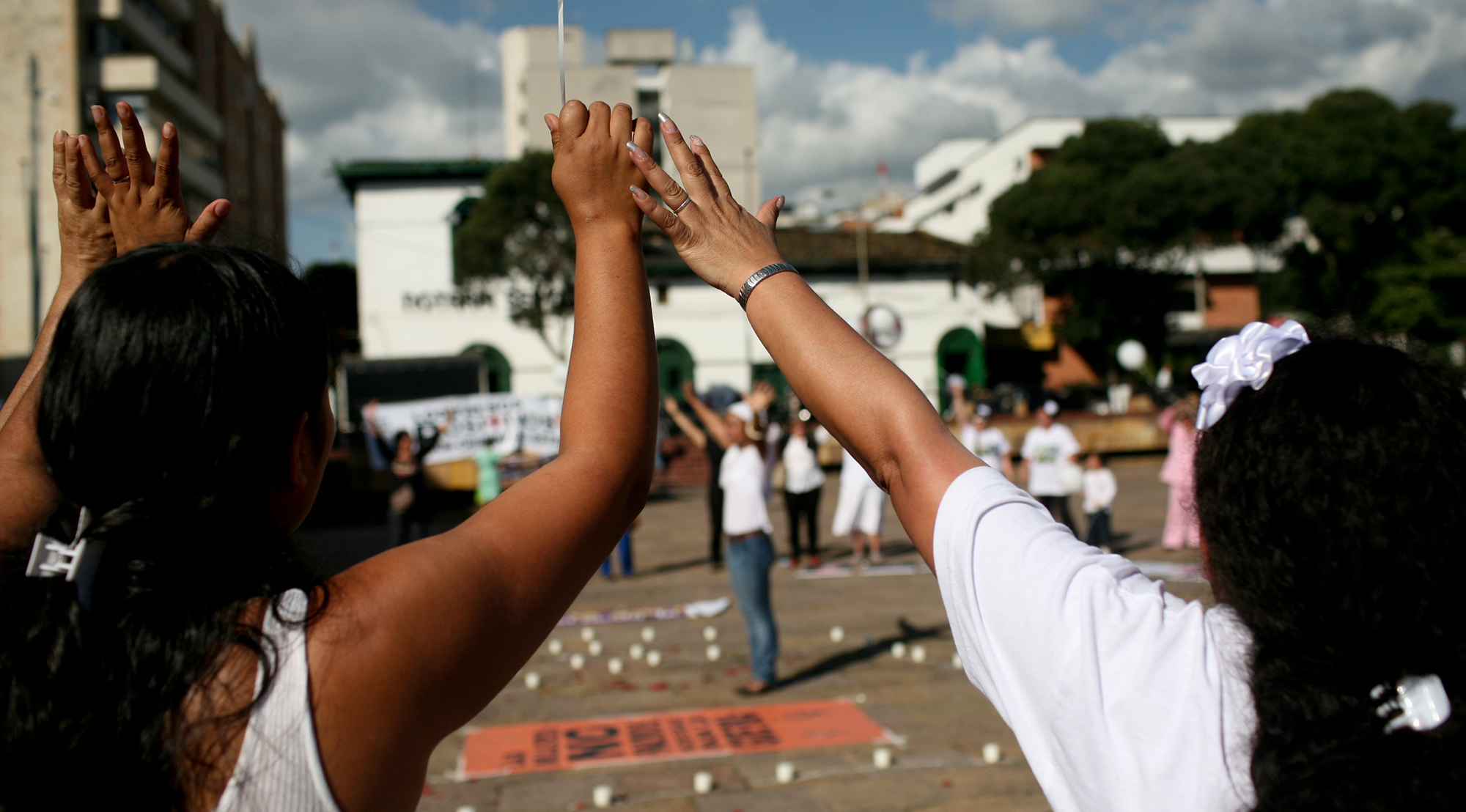The violence in Colombia shows no signs of abating. According to the UN, at least 105 human rights activists were murdered during 2017. Peace Brigades International (PBI) is trying to empower activists through psychosocial support.
The kind of socio-political violence that is taking place in Colombia can have various psychological, physical, and social effects. It has a tendency (quite deliberately in some cases) to fracture the ties that bind society and individual people together. This occurs at different levels: within families and communities or even social movements and organizations. The individual effects of constant threats and attacks can include anxiety, nightmares, paranoia, feelings of guilt, physical problems, or even depression, to name but a few. This significantly undermines participation in social and political life – and therefore the work of human rights activists. Women are often particularly badly affected as they have to deal with the combined pressures of family life, a job, and their (sometimes voluntary) human rights work. In many cases, they are also responsible for cushioning the emotional trauma experienced by family and community members due to constant threats and attacks and for bearing the negative economic consequences of stigmatization. Their commitment also breaks down the stereotypes surrounding certain roles. They experience additional stress due to feelings of guilt toward their family, particularly if they and the women’s wider social circle do not understand them.
This can lead to aggression, burnout, isolation, or general mistrust among those affected. At a social level, such patterns of behavior are followed by stigmatization, polarization of society, changes in the value system, or even exclusion from the political system.
These countless forms of psychological and physical consequences are so worrying because they undermine interpersonal relationships. Research and experience from mental health work show that good relationships with other people play a decisive role in promoting our psychological resilience, not only at an individual level, but also at a community level across several generations. For this reason, the psychosocial support given to human rights activists features a collective dimension too. This includes clarifying the political situation and developing the necessary legal expertise in terms of the human rights violations suffered. It can be helpful to organize activities aimed at breaking through the sense of impunity and the silence surrounding human rights violations as well as activities designed to revive traditions and cultural habits. This boosts individual people’s self-confidence and sense of dignity on the one hand, while strengthening relationships between organizations on the other. The latter are endeavoring to change the power structures associated with economic, social, and political exclusion, which only tend to increase violence.
Therapeutic work with victims of violence is aimed at framing personal suffering in the broader context of a collective phenomenon. This way, those affected realize they are not alone with their problems and their situation, but are part of a specific context associated with a political objective. This in turn helps them regain control of their lives and see themselves as possible actors in their own healing process against a backdrop of collective hope and social change.
For this reason, the psychosocial support offered by PBI has a twin objective: firstly to help human rights activists cope better with the heavy emotional impact of the security risk they have faced for years, and secondly to boost their capacity to defend human rights as a result. In future, PBI would like to offer this kind of support in Mexico, Guatemala, and Honduras too.


